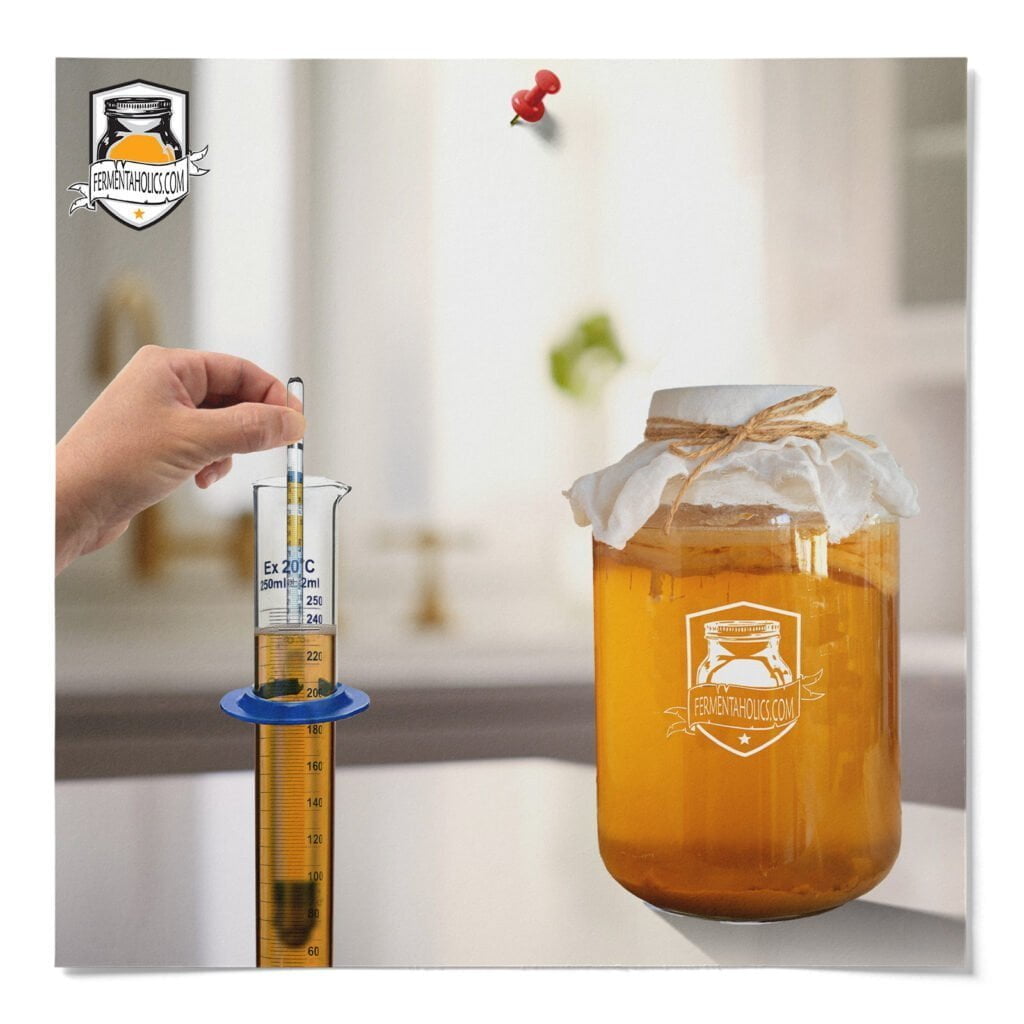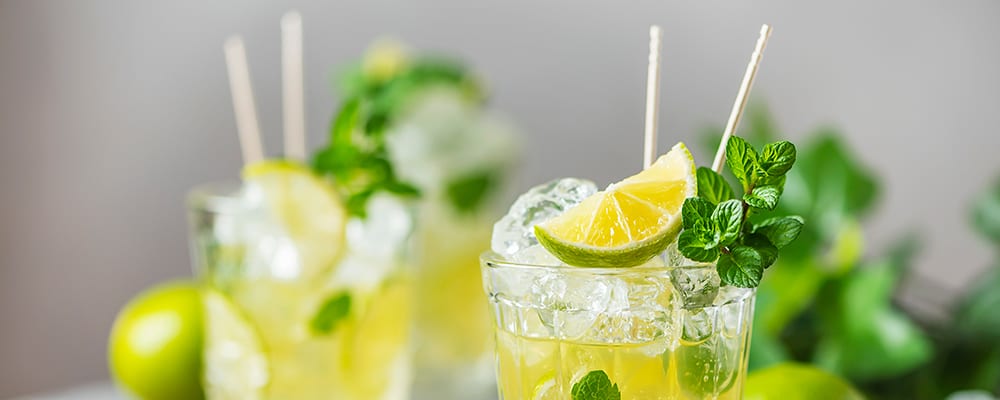

It seems not a day goes by that we don’t get questions regarding kombucha’s alcohol content. This is a valid concern for many people, but it is especially common among pregnant women, recovering alcoholics, and parents concerned about their kids drinking kombucha. Before diving in, we can essentially divide kombucha into three categories: store-bought kombucha, homemade kombucha, and hard kombucha.
For simplicity’s sake moving forward, I’ll specifically say “Hard Kombucha” when discussing this style; otherwise, I will simply say “kombucha” for classic homemade or store-bought kombucha.
Hard kombucha as the name suggests is alcoholic and has become much more common in last few years. It is readily available most bars, restaurants, and grocery stores across the US and the alcohol content typically falls somewhere between 4–8% ABV.
Yes, since kombucha is a fermented beverage, it will naturally contain alcohol, as with all fermented beverages. In the United States, beverages with an alcohol content of 0.5% or less are classified as non-alcoholic. By definition, it is mostly considered non-alcoholic or slightly above. At this level, the alcohol content is low enough not to have any intoxicating effects, similar to a non-alcoholic beer (0.5% ABV).
Homemade kombucha, generally speaking, hovers around the 0.5% mark or slightly higher. The broader range of possibilities can be as low as 0.25% and up to 1.00% ABV. There are many factors that influence this, but those looking to lower the ABV should extend fermentation times to allow the bacteria to convert more of the alcohol created by the yeast into acids.
Store-bought kombucha in the U.S. must be 0.5% ABV or lower. In fact, here in the States, all drinks—including store-bought kombucha—are required by federal law to be at or below 0.5% ABV to be considered non-alcoholic. For example, non-alcoholic beers like O’Doul’s contain 0.5% ABV. Anything higher than this, 0.6% ABV and above, is considered alcoholic, and regulations come into play.
U.S. Regulations Require Kombucha Above 0.5% ABV to Be Labeled as Alcoholic
Commercial kombucha breweries in the U.S. take great care to ensure the alcohol content of their kombucha remains below this threshold. In fact, the law requires that it not exceed this limit at any point during the product’s entire shelf life and is subject to testing at any given time.

Getting drunk from store-bought kombucha would be a monumental feat. While I don’t know anyone who’s tried to get drunk from kombucha, there have been people who have attempted this with non-alcoholic beer, which has the same ABV as store-bought kombucha. Based on these tests, it’s really not possible. Now, let’s take a look at the numbers and see for yourself.
Let’s break this down:
So, what does all this mean? Well, if you’re trying to get drunk from kombucha, you’ll need to get the hard stuff or add liquor. No worries—we have a few hard kombucha cocktail recipes to get you started!
The good news is that homemade kombucha will never accidentally become the alcoholic kombucha found in stores. Making alcoholic kombucha requires intentionally introducing a third round of fermentation by adding additional sugar and a specific type of yeast designed for alcoholic fermentation. This process raises the alcohol content to the level required to be classified as an alcoholic beverage. So, there is no concern about accidentally making hard kombucha like the ones sold in stores.
When it comes to testing kombucha’s alcohol level at home, it’s simply not a practical option. The main reason is the cost and type of equipment required, which can run into several thousand dollars. The acids present in kombucha complicate the process, as they interfere with standard alcohol tests typically used for beer and wine, which are pure yeast fermentations. This means that, unfortunately, at the home brewing level, hydrometers—the go-to tool for alcohol testing—do not work with kombucha. You can read more about it here: Kombucha and Hydrometers. Beyond this, there are no affordable options for doing so.

Commercial kombucha generally contains less than 0.5% alcohol by volume (ABV). If it goes above this limit, it would be classified as an alcoholic beverage in the United States.
The Alcohol and Tobacco Tax and Trade Bureau (TTB) in the U.S. regulates the alcohol content in kombucha. If the content exceeds 0.5% ABV, it is considered an alcoholic beverage and subject to different regulations.
The alcohol content in kombucha is influenced by the yeast, the amount of sugar, temperature, and the length of the fermentation process. Generally, the longer the fermentation, the lower the alcohol content.
Sugar is a critical ingredient in kombucha as it’s the primary food source for the yeast during fermentation. As the yeast metabolizes the sugar, it produces alcohol and carbon dioxide.
Bacteria in kombucha, particularly Acetobacter, convert the alcohol produced by yeast into acetic acid. This process helps to limit the alcohol content and also gives kombucha its signature tangy taste.
